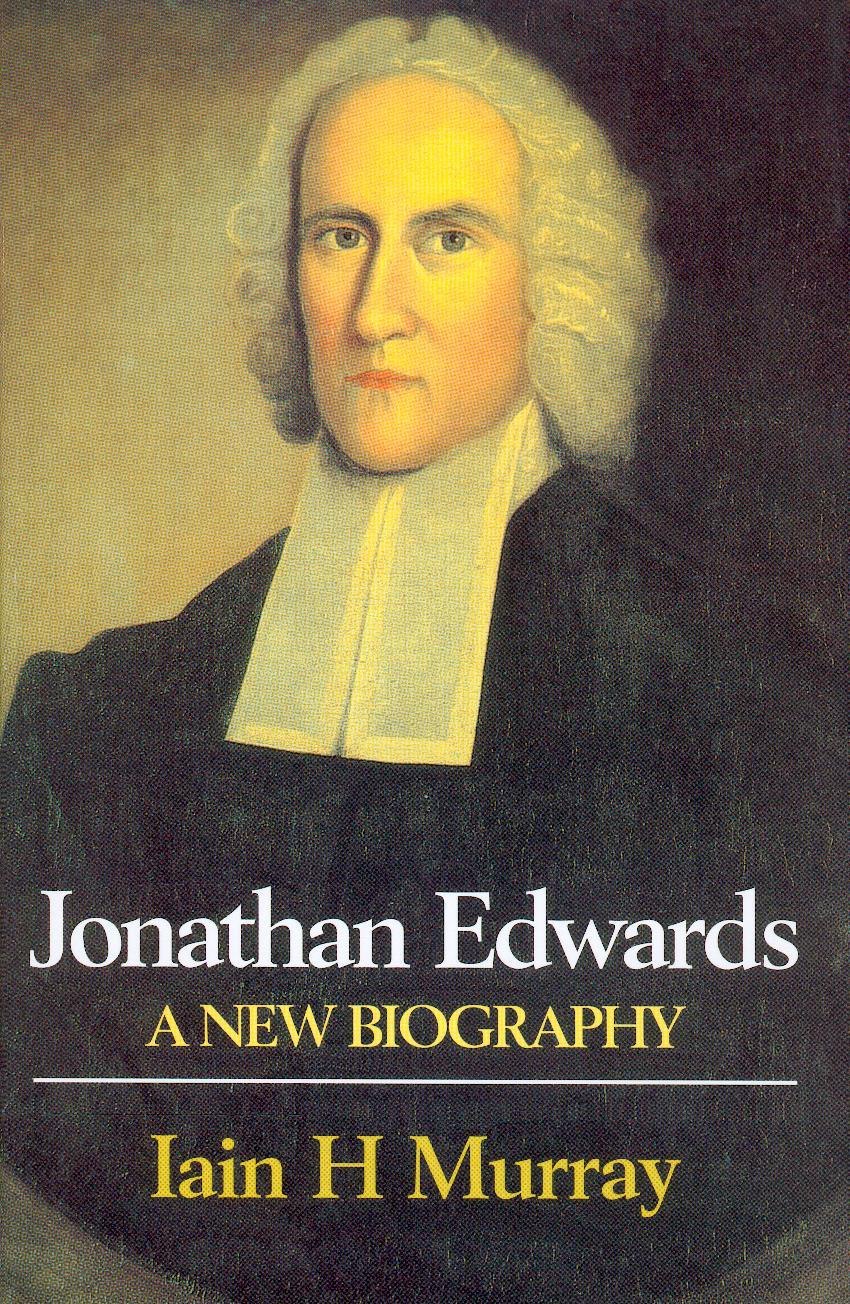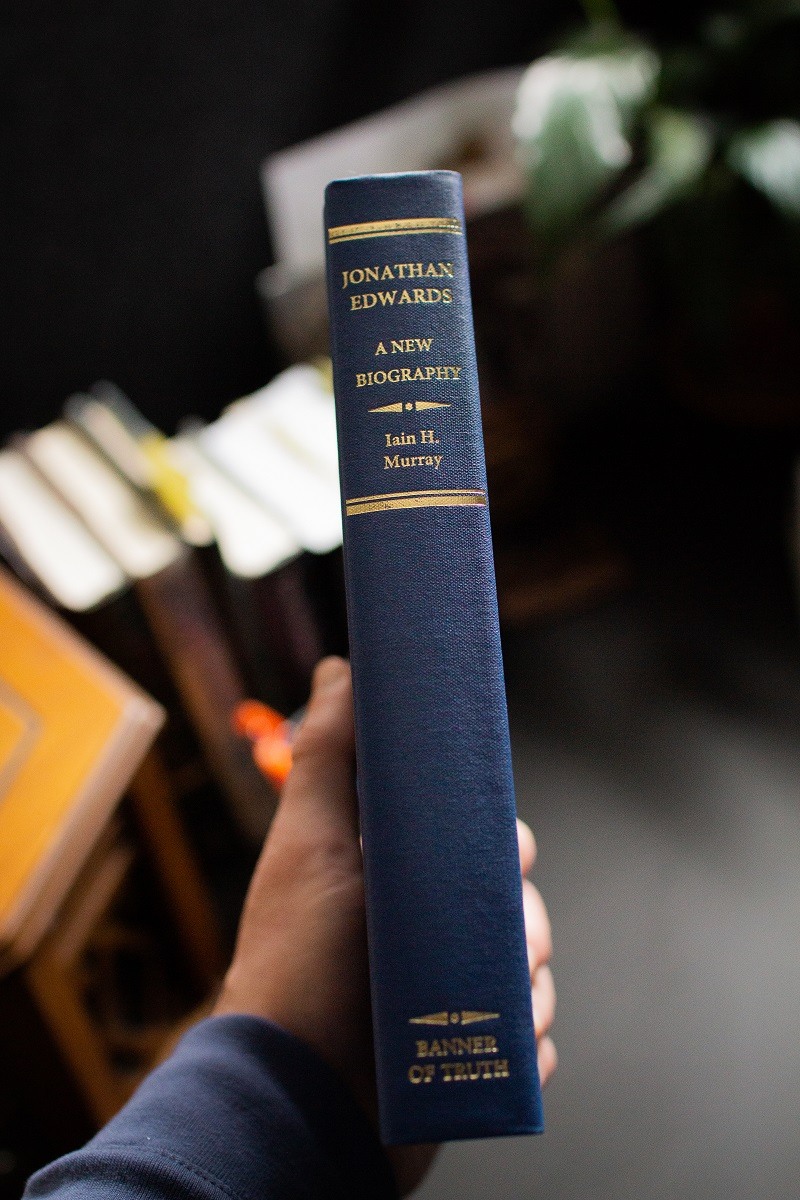Jonathan Edwards
A New Biography
500 in stock
| Weight | 1.64 lbs |
|---|---|
| Dimensions | 8.8 × 5.75 × 1.4 in |
| ISBN | 9780851514949 |
| Binding | Cloth-bound |
| Topic | 18th Century, Pastoral Biography |
| Original Pub Date | 1987 |
| Banner Pub Date | Jan 1, 1987 |
| Page Count | 503 |
| Format | Book |
ENDORSEMENTS
‘No man is more relevant to the present conditions of Christianity than Jonathan Edwards…He was a mighty theologian and a great evangelist at the same time. If you want to know anything about true revival, Edwards is the man to consult. My advice is, read Jonathan Edwards. Go back to something solid and deep and real’. — D. MARTYN LLOYD-JONES
‘A fascinating insight into someone who is still considered America’s greatest theologian philosopher. God used him astonishingly, and what Iain Murray does is to bring out the history of the period, which is just a compelling history – the evocation of the times is very real, and Iain writes history as no one else. But you’re introduced to Edwards the preacher, and Edwards the theologian. I remember reading this for the first time, and just couldn’t put it down. He was an astonishing man. It’s a tremendous read.’ — IAN HAMILTON
Book Description
When it first appeared in 1987, this book was the first full-length life of Jonathan Edwards to appear for almost fifty years. In the meantime the Pastor of Northampton, Missionary to the Indians in Stockbridge, and President of the New Jersey College (later Princeton) has been increasingly recognized as the greatest intellectual figure in eighteenth-century America.
Never before has so much material by Edwards or such detailed studies of his thought been available. Yet many of those who have led this renaissance of Edwards studies remain personally out of sympathy with almost every one of their subject’s personal convictions.
Special interest therefore attaches to Iain H. Murrary’s carefully-researched biography. Writing with the easy style, spiritual insight and sympathy with his subject which marks his other biographical works, Murray builds on the older lives of Edwards, but also harvests material from more recent studies.
Iain Murray believes that Edwards cannot be understood apart from his faith. Only when seen first and foremost as a Christian do his life and writings make sense. The integrity of this interpretation is confirmed in this study as Edwards is allowed on point after point to speak for himself.
The result is a biography which is both factually and theologically reliable. Edwards’ theology is set in the context of his everyday life in public and private. His family relationships punctuate the narrative, adding both interest and pathos. This outstanding study is not only an exceptional biography; it also serves as a classic illustration of how the church today can and should learn from its past history.
Reviews
Table of Contents Expand ↓
| Preface | xi | |
| Introduction: On Understanding Edwards | xix | |
| 1 | The Son of East Windsor | 1 |
| 2 | ‘That New Sense of Things’ | 23 |
| 3 | New York: The Pursuit of Holiness | 39 |
| 4 | Tutor at Yale | 57 |
| 5 | Stoddard and Northampton | 75 |
| 6 | The Green Valley of Humiliation | 97 |
| 7 | The Breaking of the Spirit of Slumber | 113 |
| 8 | ‘Thirteen Hours, Every Day’ | 135 |
| 9 | The Great Awakening | 153 |
| 10 | Personal Portraits | 177 |
| 11 | Division and Disorder | 201 |
| 12 | The Defence of Experimental Religion | 231 |
| 13 | ‘The Religious Affections’ | 249 |
| 14 | Changes at Northampton and Beyond | 269 |
| 15 | The International Union and Missionary Vision | 289 |
| 16 | The Communion Controversy | 311 |
| 17 | Behind the Controversy | 331 |
| 18 | Removal | 351 |
| 19 | Strife in a Frontier Village | 371 |
| 20 | Missionary to the Indians | 385 |
| 21 | Through Esther’s Eyes | 399 |
| 22 | ‘My God Lives’ | 421 |
| 23 | The Continuing Ministry | 443 |
| APPENDICES | ||
| 1: Edwards’ Published Writings | ||
| (a) During his Lifetime | 475 | |
| (b) Major Posthumous Publications | 478 | |
| (c) Collected Works | 479 | |
| 2: The Edwards’ Manuscripts | 481 | |
| 3: A Letter of Sarah Edwards, 1750 | 485 | |
| 4: An Anecdote on Whitefield and ‘the Witness of the Holy Spirit’ | 489 | |
| Index | 491 |
Related products

Description
Edwards’ theology is here set in its proper context of his life. We see him in public and private, as pastor in the days of the Great Awakening, as well as in the ‘wilderness’ years in Stockbridge. 536pp. Illustrated.

John MacArthur
Servant of the Word and Flock
Description
Edwards’ theology is here set in its proper context of his life. We see him in public and private, as pastor in the days of the Great Awakening, as well as in the ‘wilderness’ years in Stockbridge. 536pp. Illustrated.





Robert Norman –
This is one of my favorite biographies. About two years ago a godly man passed into glory and I was blessed to receive a number of volumes from his library. Many of the books given to me were biographies, which initially disappointed me, however, after having picked up Iain Murray’s biography on Jonathan Edwards to read from that set of books in order to honor the gift given to me I found that I couldn’t put it down. After this a desire to read more biographies was stirred up in me and I haven’t stopped reading biographies since.
Ben Franklin –
This is another of Iain Murray’s great biographies in the service of the church. While I cannot say it is better than Marsden’s famous work on Edwards (neither am I saying it is not as good), it may be the more helpful of the two books for preachers. Certainly, a man of Edwards’s abilities is intimidating, but this biography shapes his story to speak encouragement and inspiration to all who share his vocation—and to any follower of Christ. Like much of Edwards’s writing, it leaves one with the desire to know more of this God that he loved with all of his mind and heart and whose glory he sought in all things.
marcdanielrivera –
Iain H. Murray’s Jonathan Edwards: A New Biography, published by Banner of Truth, offers a thoroughly researched and spiritually perceptive portrait of one of the most influential figures in American religious history. Edwards, celebrated for his theological acumen and pivotal role in the Great Awakening, is brought to life through Murray’s insightful narrative.
Murray’s biography, the first full-length life of Edwards in nearly fifty years when it was published in 1987, stands out for its thoroughness and empathetic approach. Drawing on a wealth of material from Edwards’ own writings, intimate letters, and contemporary historical studies, Murray crafts a vivid portrayal of Edwards’ life. From his early years and spiritual awakening to his tenure as Pastor of Northampton, his missionary work among the Stockbridge Indians, and his brief presidency at the New Jersey College (later Princeton University), Edwards’ journey is detailed with precision and care.
Murray’s narrative excels in several areas. He delves into Edwards’ early childhood and the Christian influences that shaped his worldview. The biography details Edwards’ salvation experience and his subsequent theological development, which would underpin his contributions to the Great Awakening. Murray also highlights Edwards’ personal life, portraying his marriage and family with warmth and respect, and illustrating how his home life influenced his ministry.
Furthermore, Murray was able to contextualize Edwards within his faith. Unlike some modern scholars who analyze Edwards’ intellectual contributions in isolation from his religious beliefs, Murray insists that Edwards’ life and work can only be fully understood through the lens of his devout Christian faith. This perspective is crucial, as it sheds light on Edwards’ motivations, struggles, and achievements in a way that resonates with both historical and spiritual depth.
The biography does not shy away from the challenges and controversies Edwards faced. Murray provides a balanced account of the opposition Edwards encountered during the Great Awakening, his controversial stance on the Lord’s Supper, and his eventual expulsion from the Northampton Church. These episodes are handled with sensitivity, revealing Edwards’ resilience and unwavering commitment to his principles.
Murray also covers Edwards’ missionary work among the Native Americans in Stockbridge. His depiction of this period showcases Edwards’ dedication and adaptability and offers a nuanced view of his later years. Additionally, Murray’s exploration of Edwards’ time at Princeton provides insight into his final days.
While the biography is comprehensive, some may note the absence of a discussion on Edwards and slavery—a topic that, while less central to his theological contributions, remains relevant to understanding his historical context fully. However, this omission does not significantly detract from the overall value of the work.
Final thoughts:
Iain H. Murray’s biography of Jonathan Edwards is a highly edifying work and a significant contribution to the study of American religious history. It offers a well-rounded, deeply insightful, and spiritually enriching account of Edwards’ life and work. I highly recommend this, especially to pastors and ministers who need some inspiration in the ministry.